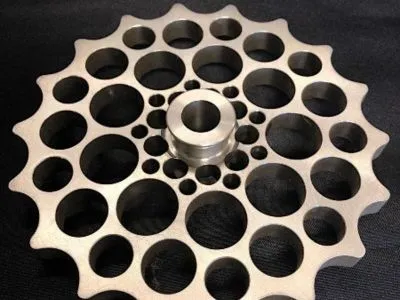What is the Tightest Tolerance for a Precision Machining Company?
Understanding the nuances of machining tolerances is key for anyone looking to partner with a precision manufacturer. As we explore the limits of modern machining, you’ll discover just how precise these processes can become. Machining tolerances are generally measured in either microns (μm) or thousandths of an inch (0.001"). Most standard machining operations can comfortably achieve tolerances of +/- 2 to 5 thousandths of an inch. However, when we talk about the tightest tolerances, we’re discussing dimensions measured in microns. Anything under 10 microns is often considered extremely tight tolerance work. Top-tier precision machine shops frequently hold tolerances of 5 microns or less on intricate parts, showcasing their expertise and technological prowess. One sector that relies heavily on ultra-tight tolerances is medical device manufacturing. From implants to surgical tools and diagnostic equipment, every component must meet micron-level specifications. A slight deviation beyond these tolerances can compromise functionality and safety in critical medical applications. Reputable manufacturers can achieve tolerances as low as 1 to 3 microns on parts used in delicate procedures like laser eye surgeries, where exact positioning and clearance are paramount. The aerospace industry is another domain that pushes the boundaries of machining precision. Weight reduction, tight clearances, and stringent performance requirements necessitate micron-level tolerances in even the simplest-looking parts. Aerospace components often demand tolerances of 2 microns or less. This level of accuracy differentiates suppliers capable of handling aerospace projects from general machining facilities. Achieving such tight tolerances requires not only advanced machinery but also meticulous processes and skilled operators. While tolerances of 1 micron or less are technically feasible, they represent the outer limits of contemporary machining technology. Factors like thermal expansion, vibration, and tool wear all contribute to degradation in achievable tolerances, even on cutting-edge CNC machines. For most practical applications, tolerances ranging from 2 to 5 microns remain the reliable standard. To achieve tolerances below 1 micron, specialized equipment and highly refined processes are required, pushing the boundaries into the realm of nanotechnology. Today’s precision machining capabilities extend well into the micron range, meeting the stringent demands of medical devices and aerospace components. Although achieving sub-1-micron tolerances is challenging, tolerances from 1 to 5 microns define the capabilities of leading precision machine shops. At Cheetah Precision, we combine state-of-the-art 5-axis milling technology, robust quality assurance systems, and decades of expertise to deliver micron-level precision on complex parts. Whether you need prototypes or large-scale production runs, our team is equipped to handle your toughest projects. Reach out to us at (651) 633-4566 to discuss your specific needs and learn more about our offerings. Click here to learn more about our services. GMCC R134A Refrigerator Compressor Gmcc R134A Refrigerator Compressor,Central Refrigerator Compressor,Dc Inverter Refrigerator Compressor,Refrigerator Compressor Dc Inverter Taizhou Tentcool Trade Co., Ltd. , https://www.tentcoolcompressor.com Precision machining companies must excel at producing parts with incredibly tight tolerances to stay competitive. Achieving the tightest tolerances is no easy task, but it's essential for industries where even minor deviations can lead to significant issues. Let’s dive into the specifics of what constitutes the tightest tolerances and how far machining technology can go.
Precision machining companies must excel at producing parts with incredibly tight tolerances to stay competitive. Achieving the tightest tolerances is no easy task, but it's essential for industries where even minor deviations can lead to significant issues. Let’s dive into the specifics of what constitutes the tightest tolerances and how far machining technology can go.Microns and Thousandths of an Inch
The Medical Industry's Demands
Aerospace Engineering and Precision
Current Limits of Machining Technology
Cheetah Precision: Your Partner for High-Tolerance Projects